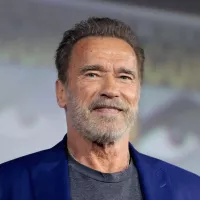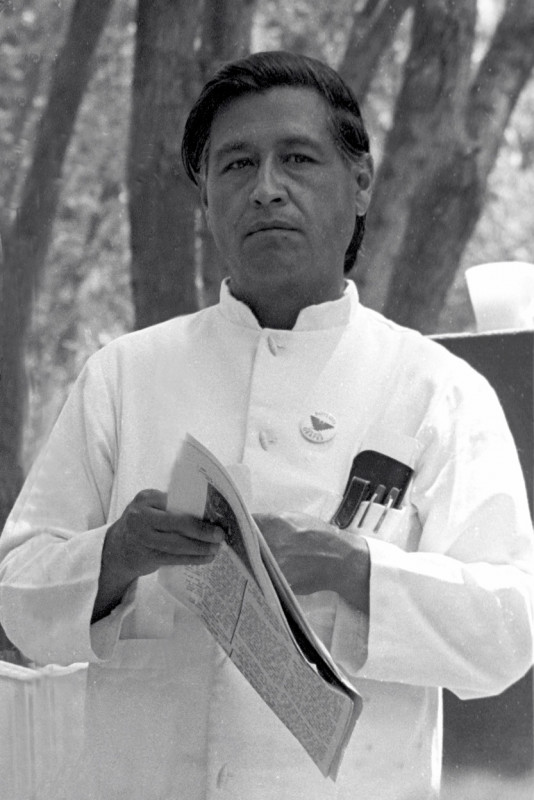Resilience and perseverance in the journey of Cesar Chavez. A timeline of obstacles and growth.
Cesar Chavez was a prominent American labor leader and civil rights activist. He co-founded the National Farm Workers Association (NFWA) with Dolores Huerta and Gilbert Padilla. NFWA later merged with the Agricultural Workers Organizing Committee (AWOC) to form the United Farm Workers (UFW) labor union. Chavez's ideology blended left-wing politics with Catholic social teachings, advocating for the rights and fair treatment of farmworkers through nonviolent means.
1939: Farm Sold
In 1939, the Chavez family's house and land were sold after being auctioned off by the Yuma County local government to cover back taxes, despite Librado's delaying tactics. This was a formative experience for Cesar.
1957: Moved to Brawley to Rebuild Chapter
In early 1957, Cesar Chavez moved to Brawley to rebuild the CSO chapter there. The FBI began monitoring him.
September 1965: Delano grape strike begins
In September 1965, Filipino American farm workers organized by the Agricultural Workers Organizing Committee (AWOC), initiated the Delano grape strike for higher wages. Cesar Chavez and his largely Mexican American supporters voted to support them. The strike covered a large area, with Chavez dividing the picketers and insisting on non-violence. Police monitored and arrested strikers. The FBI launched an investigation into Chavez and the NFWA.
1965: Decline in Picket Line Numbers
By 1965, Cesar Chavez noticed a decline in the number of people joining the picket lines. To address this, he invited left-wing activists to join, especially university students from the San Francisco Bay Area. Coverage of the strike in newspapers such as The Movement and People's World, helped fuel recruitment.
1965: Delano Grape Strike Began
In 1965, Cesar Chavez began organizing strikes among farmworkers, most notably the Delano grape strike.
June 1966: DiGiorgio Workers' Election and Boycott Switch
In June 1966, after negotiations with Schenley's lawyer, Cesar Chavez declared an end to the Schenley boycott, switching it to the DiGiorgio Corporation. An election was held among DiGiorgio workers, with the International Brotherhood of Teamsters competing against the NFWA. After the election terms were altered, Chavez removed the NFWA from the ballot and urged his supporters to abstain. The Teamsters won, but the election was declared invalid.
1966: Protest Camp in Delano
By late fall of 1966, a protest camp had formed in Delano, opening a medical clinic and children's nursery. Protesters were entertained by Luis Valdez's El Teatro Campesino, which put on skits with a political message. Tensions arose between the striking farm-workers and the influx of student radicals.
June 1967: Purge of the Union and Split with El Teatro Campesino
In June 1967, Cesar Chavez launched a purge of the union to remove those he deemed disruptive or disloyal, claiming he wanted to eject members of the Communist Party USA. Some members left in disapproval. Tensions with El Teatro Campesino led to Chavez asking them to disband, after which it split from the union.
August 1967: Strike and Boycott Against Giumarra
In August 1967, Cesar Chavez announced a strike against Giumarra, the largest grape grower in the San Joaquin Valley, followed by a boycott of their grapes.
February 1968: Contempt citation against the union
In February 1968, the Giumarra company obtained a contempt citation against the union, claiming that its members had used threatening and intimidating behavior and had placed roofing nails at the entrances to its ranches.
September 1968: Hospitalization and Recuperation
In September 1968, Cesar Chavez was hospitalized due to worsening back pain and then spent time recuperating at St Anthony's Seminary. After returning home and finding it too crowded, he moved into Forty Acres. He used his image of physical suffering as a tactic in his cause.
1968: Full Responsibility
In 1968, Fred Hirsch noted that Cesar Chavez took full responsibility for as much of the operation as he was physically capable of, and that all decisions were made by him.
July 1970: Conflict with Teamsters in Salinas Valley
In July 1970, the Grower-Shipper Association renegotiated contracts with the Teamsters, angering Chavez, who traveled to Salinas to rally lettuce cutters dissatisfied with the Teamsters' representation.
October 1971: Itliong Resigns Amid Frustrations
In October 1971, Amid growing frustrations with Chavez's leadership, Itliong resigned.
1972: "Illegals Campaign"
In 1972, Chavez expressed concerns that strikes undertaken by agricultural workers could be undermined by "wetbacks" and "illegal immigrants".
1972: Internal Conflicts and Criticisms
In early 1972, Richard Chavez confronted Cesar about the UFW's issues in Delano, citing declining support and concerns about Chavez's leadership and disconnect from the membership.
April 1973: Strike in Coachella Valley and Conflict with Teamsters
In April 1973, after the UFW's contract with grape growers in Delano expired, Chavez called a strike in the Coachella Valley, leading to clashes with the Teamsters who sought to replace the UFW.
1973: UFW Lost Contracts and Membership
By 1973, the UFW, led by Cesar Chavez, had lost most of the contracts and membership it won during the late 1960s.
1974: Struggles and European Tour
By 1974, the UFW was again facing financial difficulties and a floundering boycott, leading Chavez to travel to Europe to seek support from unions and meet with Pope Paul VI in Rome.
November 1976: Purge of UFW Staff
In November 1976, Chavez blamed Nick Jones, the UFW's national boycott director, for the Proposition 14 defeat and accused him of conspiracy. Jones resigned, expressing concerns about Chavez's leadership. Chavez fired Joe Smith and ordered interrogations of campaign staff, leading to a McCarthyite atmosphere and press attention within the UFW.
November 1976: Proposition 14 Defeated
In November 1976, Proposition 14, intended to enshrine farmworkers' rights in California's constitution, was defeated by a two-to-one margin. Despite concerns from Chavez and Brown, the UFW devoted resources to the campaign. Growers funded a campaign emphasizing the measure would allow unions to trespass on private property. Chavez viewed the defeat as a personal rejection.
February 1977: UFW Executive Board Visits Synanon
In February 1977, Chavez brought the UFW's executive board to the Synanon compound, participating in "the Game," a therapy system involving harsh criticism. Chavez sought to implement it at La Paz to shape behavior, despite opposition and traumatic experiences among participants. The farmworkers were not informed about the Game.
April 1977: "The Monday Night Massacre"
In April 1977, at a La Paz meeting called "the Monday Night Massacre," Chavez denounced individuals as malcontents or spies. Executive board members verbally abused and ejected them from the community. Chavez later accused Philip Vera Cruz of conspiracy and forced him out.
June 1978: Chavez Jailed During Arizona Melon Strike
In June 1978, Cesar Chavez joined a picket in Yuma as part of his cousin Manuel's Arizona melon strike, breaking an injunction, which led to his jailing for a night.
September 1978: UFW Suffers Election Losses
By September 1978, vegetable workers were increasingly frustrated with the UFW, especially regarding its medical plan. In the 22 farmworker elections between June and September 1978, the UFW lost two-thirds of them.
1979: Strike against Maggio company
In 1979, the UFW conducted a strike against Maggio company. The UFW was later found liable for damages to the Maggio company for illegal actions that the union carried out during the 1979 strike in 1987.
May 1981: Chavez Insists on UFW Infiltration
In May 1981, Chavez called a staff meeting at La Paz, insisting that the UFW was infiltrated by spies and arranged for loyalists to be put on the executive board, which now had no farmworkers.
September 1981: UFW's Fresno Convention and Allegations of Antisemitism
At the UFW's Fresno convention in September 1981, paid representatives nominated their own choices for the board, leading Chavez's supporters to distribute leaflets accusing them of being puppets of "the two Jews," Ganz and Cohen, resulting in allegations of antisemitism against Chavez.
1982: Jerry Brown leaves governorship
In 1982, Jerry Brown's term as governor of California ended and he was replaced by Republican George Deukmejian, who had the support of the state's growers. Under Deukmejian, the ALRB's influence declined.
1982: Decline in UFW Dues
In 1982, the dues that membership brought in were $2.9 million.
January 1983: Decline in UFW Contracts
In January 1983, UFW contracts covered 30,000 jobs.
January 1986: Further Decline in UFW Contracts
By January 1986, UFW contracts had fallen to 15,000 jobs.
1987: UFW liable for damages
In 1987, the UFW was found liable for $1.7 million in damages to the Maggio company for illegal actions that the union carried out during their 1979 strike.
July 1988: Chavez Launches Another Public Fast
In July 1988, as the UFW's boycott of Bruce Church products failed to gain traction, Cesar Chavez launched another public fast at Forty Acres. The fast attracted media attention when three of Robert Kennedy's children visited.
1988: Jury Verdict Against UFW
In 1988, a jury returned a $5.4 million verdict against the UFW in a legal battle with Bruce Church, who claimed libel and illegal threats to supermarkets selling Red Coach lettuce. This verdict was later thrown out in the appeals court.
January 1989: Hartmire Resigns
Following Chavez's fast, further purges occurred at La Paz, with Chavez accusing more people of being saboteurs. In January 1989, Hartmire was among those pushed out and resigned.
1993: Testimony in Yuma Court
In 1993, Cesar Chavez was called to testify in front of a Yuma court regarding the legal battle between the UFW and Bruce Church. A verdict against the UFW would have been financially devastating.
Mentioned in this timeline

Barack Obama the th U S President - was the...

Bill Clinton the nd U S President - served as...

Martin Luther King Jr was a pivotal leader in the...

Arnold Schwarzenegger is an Austrian-American actor businessman former politician and...

Stevie Wonder born Stevland Hardaway Morris is a highly influential...

Google LLC is a multinational technology company specializing in online...
Trending
31 minutes ago Julian Champagnie shines as a 'Hidden Gem' for the San Antonio Spurs.

31 minutes ago Malik Monk shines in return, leading Kings' bench after injury recovery.

31 minutes ago Kypson faces de Minaur: ATP Acapulco clash predictions and alternative odds.

32 minutes ago TWICE to perform on Jimmy Fallon's Tonight Show: How to watch online.

32 minutes ago Kevin Nash Apologizes to Je'Von Evans After Offensive Remark; Raquel Rodriguez Comments

32 minutes ago Lee Ann Womack Returns With New Song; Hannah Harper Covers Her on Idol.
Popular

Jesse Jackson is an American civil rights activist politician and...

Barack Obama the th U S President - was the...

Michael Joseph Jackson the King of Pop was a highly...

Bernie Sanders is a prominent American politician currently serving as...

Susan Rice is an American diplomat and public official prominent...
The Winter Olympic Games a major international multi-sport event held...
